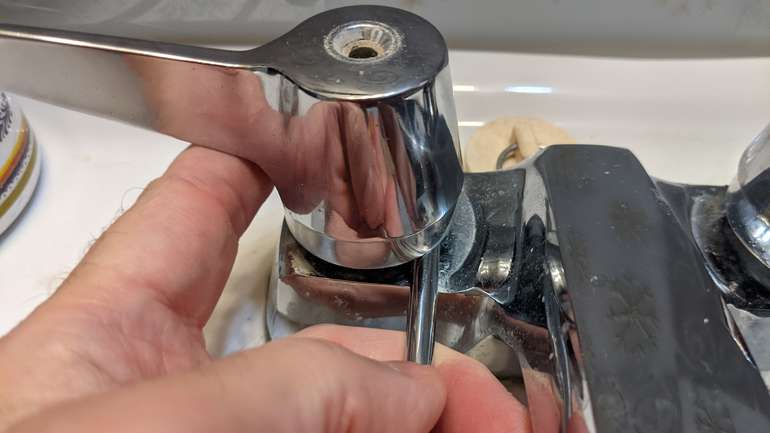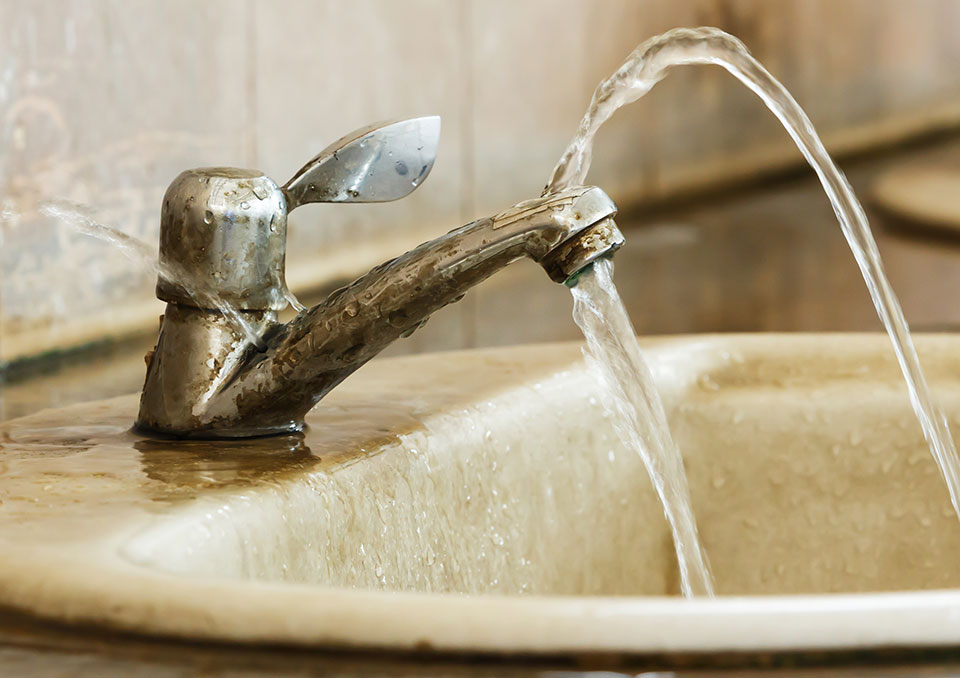Your Merits of Fixing a Broken Faucet
Your Merits of Fixing a Broken Faucet
Blog Article
Are you hunting for critical info on Water Dripping from Faucet: Why and How to Fix?

Trickling taps may appear like a minor hassle, but their influence exceeds just the annoyance of the audio. From wasting water to incurring unneeded monetary costs and wellness dangers, ignoring a trickling faucet can bring about different consequences. In this post, we'll delve into why it's critical to address this usual house problem without delay and efficiently.
Wastefulness of Water
Environmental Effect
Trickling taps contribute substantially to water wastefulness. According to the Environmental Protection Agency (EPA), a single faucet leaking at one drip per secondly can lose greater than 3,000 gallons of water per year. This not only strains water resources however likewise impacts ecological communities and wild animals depending on them.
Step-by-Step Overview to Dealing With a Dripping Tap
Devices Needed
Before attempting to fix a trickling tap, gather the required devices, consisting of an adjustable wrench, screwdrivers, replacement components (such as washers or cartridges), and plumber's tape.
Common Tap Issues and Their Solutions
Determine the kind of tap and the certain problem causing the drip. Usual issues include damaged washing machines, corroded shutoff seats, or defective O-rings. Describe maker instructions or on the internet tutorials for step-by-step support on repairs.
Financial Expenses
Increased Water Expenses
Past the environmental effect, trickling taps can inflate water expenses considerably. The built up waste with time translates into higher utility costs, which can have been prevented with prompt fixings.
Potential Residential Property Damages
In addition, long term trickling can bring about harm to components and surface areas bordering the faucet. Water accumulation can cause discoloration, rust, and even structural concerns if left neglected, leading to additional repair prices.
Wellness Issues
Mold and Mold Growth
The constant visibility of dampness from a leaking faucet develops an optimal environment for mold and mildew and mildew development. These fungi not just compromise indoor air top quality however additionally position wellness dangers, specifically for individuals with respiratory system conditions or allergies.
Waterborne Conditions
Stationary water in dripping faucets can come to be a breeding place for bacteria and other microorganisms, raising the risk of waterborne diseases. Pollutants such as Legionella germs prosper in stationary water, possibly bring about significant illnesses when consumed or breathed in.
Do it yourself vs. Specialist Fixing
Pros and Cons of DIY Repair
While some might try to repair a dripping faucet themselves, do it yourself fixings feature their own set of obstacles. Without correct understanding and tools, do it yourself attempts can worsen the problem or lead to insufficient repair work, lengthening the issue.
Advantages of Employing a Specialist Plumber
Employing a specialist plumber guarantees that the underlying source of the dripping tap is addressed successfully. Plumbing professionals possess the know-how and equipment to identify and fix tap concerns efficiently, saving time and reducing the danger of more damages.
Ecological Duty
Individual Contribution to Preservation
Taking duty for dealing with trickling taps straightens with more comprehensive initiatives toward water conservation and environmental sustainability. Every individual's activities jointly make a considerable effect on protecting precious sources.
Sustainable Living Practices
By prioritizing punctual repair services and embracing water-saving habits, people contribute to lasting living methods that benefit both existing and future generations.
Preventive Measures
Normal Upkeep Tips
To prevent leaking taps, do routine upkeep such as cleaning aerators, checking for leaks, and replacing damaged parts immediately. Additionally, think about mounting water-saving devices or upgrading to a lot more efficient fixtures.
Value of Prompt Services
Dealing with leaking taps as quickly as they're noticed avoids additional water waste and prospective damages, inevitably conserving both water and cash in the future.
Influence On Property Worth
Assumption of Well-Maintained Property
Maintaining a residential property in good condition, including dealing with maintenance issues like dripping taps, enhances its viewed value and charm amongst possible customers or renters.
Influence on Resale Worth
Qualities with properly maintained plumbing fixtures, consisting of faucets, command greater resale values in the property market. Attending to dripping faucets can add to a positive perception during residential or commercial property inspections and settlements.
Verdict
Dealing with a leaking tap goes beyond mere comfort; it's a crucial step toward saving water, minimizing economic prices, and safeguarding health and residential or commercial property. Whether through DIY repair work or expert support, acting to repair dripping faucets is a tiny yet impactful means to advertise accountable stewardship of resources and contribute to a healthier, more lasting future.
How to Fix a Leaky Faucet: Step-by-Step Repair Guide
A leaky faucet may seem like a simple annoyance, but if it's not fixed promptly, that leak could cost hundreds to potentially thousands. From water damage to mold, mildew, and high water bills, even a tiny leak can be catastrophic if left unattended. Damage like this can even affect the overall value of your home, so it's important to take the right approach for leaky faucet repair. You may need the help of a plumber in some cases, but we've got a few tips you can try on how to fix a leaky faucet before calling the pros.
Four Faucet Types
When you're learning how to fix a leaky faucet, the first step is knowing what kind of faucet you're working with! There are four common types.
Cartridge Faucets
Cartridge faucets come in one- or two-handled varieties. In one-handled cartridge faucets, hot and cold water combines in a single cartridge. In the two-handled versions, hot and cold water are controlled separately and mixed in the faucet.
Ball Faucets
Ball faucets have a single lever you push up and down to adjust the pressure and rotate to change the temperature. A slotted metal ball controls the amount of water allowed into the spout.
Compression Washer Faucets
They're the oldest type of faucet, but they're still used in many homes — especially older ones. Compression faucets have two separate handles that, when turned, raise or lower the washer that seals a water valve. This valve stops water from flowing through the faucet when it is turned off.
Disc Faucets
Disc faucets rarely need to be repaired due to their maintenance-free design. The water flow is controlled by two discs — the upper one raises and lowers against a fixed lower disc, creating a watertight seal. If your disc faucet starts leaking, you may need to replace the seals or clean residue buildup from the inlets.
Fixing a Leaky Faucet
Step 1: Turn Off the Water
Whether you're learning how to fix a leaky bathtub faucet or how to fix a leaky kitchen faucet, always turn off the water supply to your working area when you're fixing a leak. The last thing you want is a flood added to your list of things to fix.
Look for the shutoff valves below your sink or around the tub and turn them clockwise to stop the water flow. If your faucet doesn't have shutoff valves, you may need to turn off the water for the whole house. Check to make sure it's off by turning the faucet on. If nothing comes out, you're ready to start the repair.
Step 2: Take Apart the Faucet
How you disassemble your faucet depends on the type of fixture you have. You can use a flathead screwdriver to remove the caps on top of the handle or handles for cartridge and compression faucets. Inside, you should see handle screws. Unscrew these with a screwdriver to remove the handle.
Disc- and ball-style faucets will typically have an inlet screw near the handle, and removing that will reveal the interior of the faucet.
Detach the Valve Stem
For cartridge- and compression-style faucets, you'll see the inner valve stem or cartridge once you remove the faucet handles. If you have a compression faucet, unscrew the brass valve stem. If you have a cartridge faucet, pull out the cartridge. If your cartridge has been in place for a while, it may require some tools or extra force to remove it due to mineral deposits.
Examine and Replace Parts
Once you've removed the parts, check them out to confirm what needs to be replaced. You may see corroded rubber washers, O-rings, stems, or cartridges. On a ball-style faucet, check the seats and springs for damage.
If you need to repair a leaky disc faucet, check the inlet and seals on the lower disc.
Once you determine what parts must be replaced, visit your local hardware store. Bring the damaged parts with you to ensure you can purchase the correct components to replace them.
Clean Valves and Faucet Cavity
If you've removed a stem or cartridge, you may notice mineral buildup in the faucet's threads. Use white vinegar to clean the valve seat by soaking it for a few minutes, then scrub it away with a soft toothbrush and rinse with warm water. You can also clean the interior of the faucet in the same way.
Reassemble the Faucet
Once your faucet is cleaned and the required parts have been replaced, it's time to reassemble it. Put the pieces back together and slowly turn the water supply back on. Doing this slowly is crucial because too much initial water pressure can damage the new hardware you've just installed.
https://homewarranty.firstam.com/blog/how-to-fix-leaky-faucet

Do you like more info about Why Are My Faucets Dripping (And Can I Fix It Myself)?? Put feedback down the page. We'd be happy to know your views about this page. We are looking forward that you visit us again soon. Are you aware of another individual who is in the market for the niche? Do not hesitate to share it. Kudos for your time. Please visit our blog back soon.
Report this page